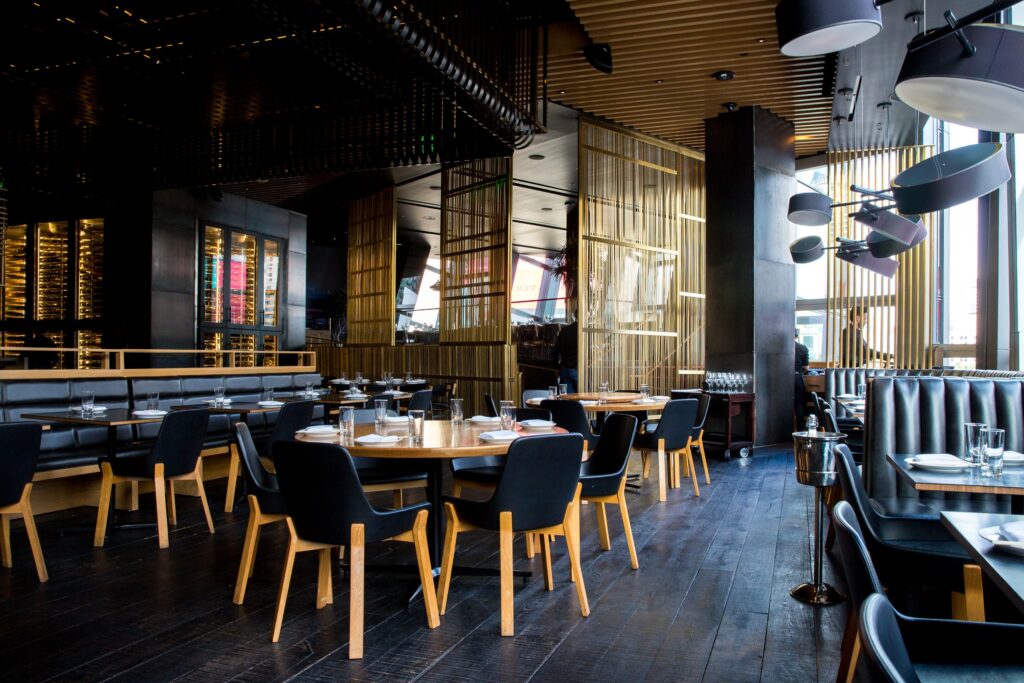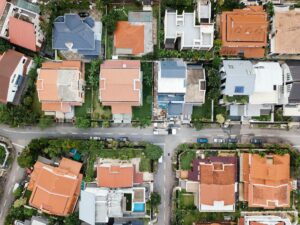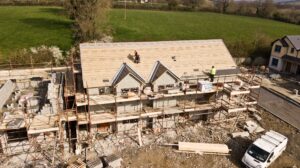
What Is B2 Commercial Zoning?
If you currently own land or are set to buy land in the near future, among the most important aspects of land ownership involves the the type of zoning that the land is situated in. Zoning involves the local or municipal laws that directly govern how property can be used in most geographic areas. For instance, it’s possible for zoning regulations to place limits on the industrial or commercial use of land to make sure that manufacturing processes and oil production aren’t implemented in residential neighborhoods. If these processes were allowed, the disruption to the neighborhood would likely be considerable.
Even though zoning laws are strict and must be followed by any person or entity that owns land in the zone, these laws are able to be suspended or modified in the event that the construction of another type of property will assist the community is advancing economically. By placing zoning laws and guidelines over different areas of land, zoning provides local governments with the ability to determine how land is used. The various types of zoning classifications extend to:
- Residential
- Agricultural
- Industrial
- Hospitality
- Commercial
When looking at commercial zoning, a more specific type of this zone is B2 commercial zoning. The exact purpose that this zone has is to provide businesses with areas they can use to set up shop. This particular form of commercial zoning is available to wholesale businesses and large-site retail companies. It’s possible to construct shopping centers in these areas for food, construction, home, business, and farm-related purchases.
Any land that’s situated in a B2 commercial zone can be used in many permitted ways, which include everything from restaurants to furniture stores. While many zones will have strict dimensional standards and limitations that developers will need to abide by, the only limit with this zone is that any building on this land may only be constructed to a max height of 45 feet. Here is a more in-depth look at B2 commercial zoning and the rules you must adhere to before developing on this land.

How Does Zoning Work?
If you’re unsure of how zoning works in areas like Los Angeles, zoning regulations outline the types of operational and developmental uses that can occur on a piece of land. It’s common for municipalities to partition neighborhoods and districts in accordance with a master plan. By adhering to the guidelines mentioned in the plan, the municipality can boost economic development, manage noise, control the flow of traffic, protect resources, and make sure that residents have enough living space.
There are times when local governments will ban the possible use of residential property for various business purposes, which is done to ensure that commercial activity only occurs in certain areas around the city. It’s also possible for zoning laws to regulate how construction may occur in certain neighborhoods and areas. For instance, the maximum height of a building may be restricted to ensure that homes or commercial buildings in an area don’t differ substantially in size.
Zoning restrictions can affect land and property prices. If there are only a small number of limitations in the zone, property may have a higher value. Keep in mind that it’s possible for changes to be made to zoning law even if the current laws aren’t fully repealed. A property owner or developer has the opportunity to apply for and obtain a variance that allows for specific exceptions to the zoning laws and regulations. In this situation, the property could be used in a manner that isn’t directly permitted.
While Los Angeles County will provide landowners and developers with zoning variances from time to time, these variances are typically difficult to obtain. Applicants may need to explain why this variance is necessary and if the change will lead to substantial disruption to the nearby community. In many cases, zoning is controlled directly by the county that you live or work in. However, there are times when the city will control zoning. There aren’t any federal zoning agencies, which is why zoning regulations and laws can differ from county to county.

The Purpose of a B2 Commercial Zone
Before you begin development in a B2 commercial zone, you should know why this type of zone exists and what its main purpose is. As mentioned earlier, the purpose of a B2 commercial zone is to provide areas for wholesale businesses and large-site retail companies to construction shopping centers for a wide range of different products. The types of purchases that are allowed in this commercial zone include business, food, home, auto, and farm-related purchases.
An objective that this zone has is to make sure that there are large areas of land that can be used for commercial purposes. This land can consist of storage facilities, commercial buildings, and parking lots. Keep in mind that the density of a B2 commercial zone is considerably more spread out when compared to a standard retail area.
What Are the Permitted Uses of a B2 Commercial Zone?
There are 30 permitted uses that are currently recognized by the B2 zoning law. Only the permitted uses will be allowed in a zone, which means that attempting to construct a building that isn’t permitted under the B2 commercial zone laws will likely result in substantial fines and demolition of any work you’ve done. There are times when a permitted use will be added or removed with an amendment. However, amendments are rare and must be made by the county’s legislative body. Here’s a detailed list of the 30 permitted uses of a B2 commercial zone:
- Repair garages and service stations for automobiles
- Amusement enterprises, which extend to billiards, pool, roller rinks, bowling, dance halls, indoor theaters, and outdoor theaters
- Snowmobile, automobile, motorcycle, farm machinery, and boat sales lots as long as services are conducted in an enclosed building
- Confectioneries and bakery shops
- Blueprinting and photostatting companies
- Wholesale and retail building supply outlets, which include paint, plumbing, lumber, and electrical supplies
- Carpet cleaning companies
- Car washing establishments
- Drugstores
- Clubs and similar places of entertainment that are being operated as commercial businesses
- Variety and department stores
- Feed, seed, fertilizer, and farm sales
- Retail florists
- Retail food stores, which include grocery, produce stands, fish and meat shops, and food processing stores
- Grounds for sports or games, which extend to community centers, gymnasiums, country clubs, and parks
- Wholesale and retail appliances, electrical items, and hardware
- Motels, inns, and hotels
- Gunsmiths and locks
- Music stores
- Office supplies, sales, service, and equipment
- Wholesale and retail nurseries and landscaping materials
- Secondhand stores or pawnshops
- Drive-ins and restaurants
- Decorator, upholstery, or paperhanging stores
- Sporting goods
- Milliners, dressmakers, and tailors
- Uses that are specifically permitted in a PB zone
- Service or retail establishments that deal with consumers
- Special property uses that are detailed in SMC 17.64.020
- Furniture and clothing sales
Keep in mind that there are special rules and guidelines that developers must adhere to when they want to build a dance hall. While dance halls are permitted in a B2 commercial zone, they can’t be situated within 1,000 feet from R1, R1M, R2, R2, or MH residential zoning districts.

Dimensional Standards and Limits of a B2 Commercial Zone
As mentioned previously, there aren’t many dimensional standards and limitations that developers must stick to when constructing a building in a B2 commercial zone. Any limit that does exist must be adhered to exactly. In the event that your building is higher than the maximum building height allowed in a B2 commercial zoning, you could be fined. You would also be tasked with demolishing any work that you’ve done on the building in question. The dimensional standards in a B2 commercial zone include:
- Minimum lot area – none
- Minimum lot width – none
- Maximum building height – 45 feet
- Maximum land coverage – none
- Minimum floor area – none
There isn’t a required yard area in a B2 commercial zone.
If you own a piece of land that’s located in a B2 commercial zone, you can use the land for any of the 30 permitted uses mentioned previously. While you may be able to apply for a zoning variance in certain situations, being approved for a variance is difficult and time-consuming. As long as your use for the land falls under the permitted uses, there aren’t many restrictions that you’ll need to abide by. If the building is constructed to a height that’s lower than 45 feet, you shouldn’t have any issues with finalizing the construction process.

Jason Somers, President & Founder of Crest Real Estate
With over 15 years of professional experience in the Los Angeles luxury real estate market, Jason Somers has the background, judgement and track record to provide an unparalleled level of real estate services. His widespread knowledge helps clients identify and acquire income producing properties and value-ad development opportunities.
Learn more about Jason Somers or contact us.



